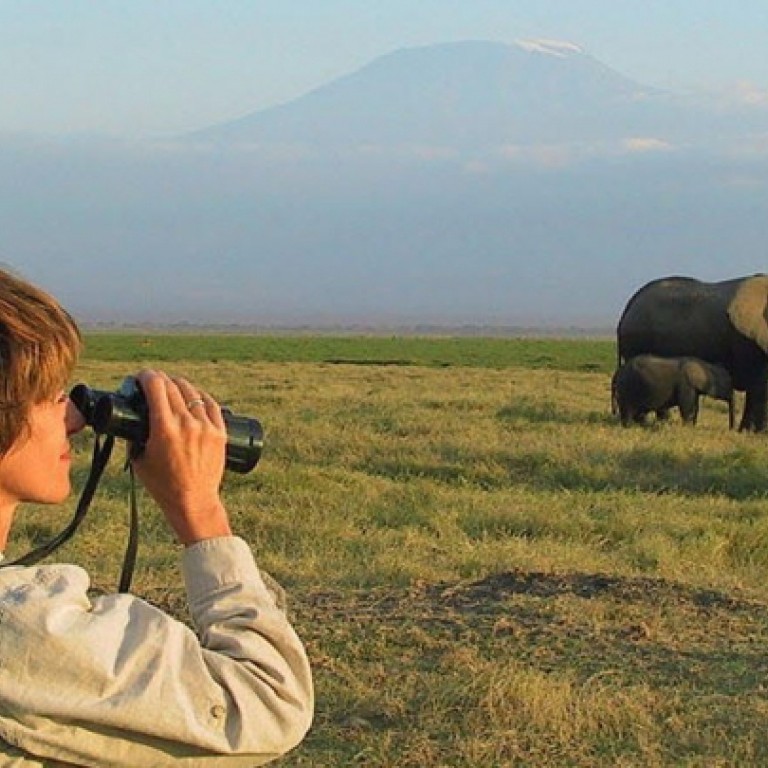
Save elephants from Chinese ivory trade or we lose them, says researcher
China's insatiable appetite for ivory may mean the end for the animals if Beijing doesn't ban the trade, for which Hong Kong is a transit hub
More than 7 per cent of the world's elephants were killed for their tusks in the space of a year - the "worst in history", according to one researcher.
And with over 40 per cent of the ivory haul bound for China, the biggest market for tusks, Joyce Poole, co-director of conservation group Elephant Voices, is urging Beijing to step in and ban the trade.
"It's either China does something, or we lose the elephants. It's that big," Poole said. "If we can't even save the elephants - such an iconic keystone animal, important to the African habitat - then what hope do we have?"
Nearly 40,000 elephants are slaughtered - using everything from spears to automatic weapons - every year for the illegal trade in tusks, said Poole. And with about 400,000 elephants left in the world today, most of them will be gone in 10 years if the poaching continues at this rate, said Poole, who has spent over 40 years researching the animals.
It is Chinese demand for ivory which is driving the poachers, Poole said. Trinkets made from ivory, sometimes known as "white gold", are a traditional symbol of wealth and status in China. And some of it is going through Hong Kong, she said.
Customs figures show Hong Kong has seized at least 16 tonnes of ivory since 2008. Some 1,800 elephants would have been killed for such a haul. Its value - based on the 2010 price of US$700 per kg - is about HK$87 million.
A ban on the global trade of ivory has been in place since 1989. There have been two one-off, sanctioned sales since, in 1999 and then in 2007, when 106 tonnes of ivory stockpiles were sold mainly to China, and Japan.
But Poole said the situation now is worse than before the ban. Any elephant carcass found is examined - and 93 per cent of them turn out to have been the victims of poachers, she said.
Poole is visiting Hong Kong, Shenzhen and Beijing to give talks and raise awareness on the issue. "I think many people don't know that you can't get the tusks [for ivory] without killing the elephants," Poole said. "Also, the ivory [the world] gets today is all from killing the elephants, none from natural death now."
There has been a sharp rise in poaching since the last sanctioned sale in 2007, data from the Convention of International Trade of Endangered Species (CITES) shows. "It's not because the ban didn't work," Poole said, adding that elephant populations began to recover in the first few years after the ban. But both sales prompted a spike in poaching, she said. And the incentive for African hunters is huge, as one elephant would fetch the same as an annual salary, she said.
"[Beijing is] still in denial that they have any part to play," said Poole, acknowledging China and seven other countries did attend a recent CITES meeting on the trade. "Ideally [China should] … make it all illegal," she said. "Ivory isn't worth much to the [Chinese] economy, but losing the elephants will make a huge difference to African countries."
